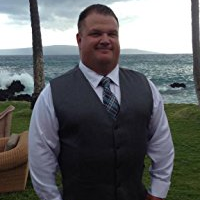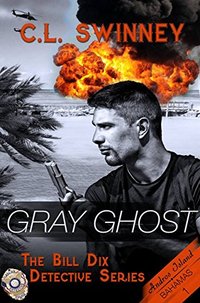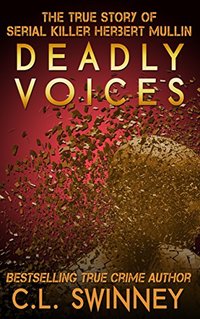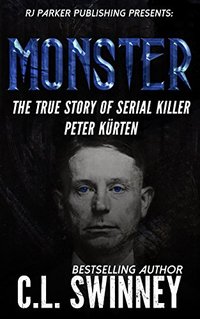C.L.Swinney Interview Published on: 07, Dec 2017
 What was your childhood like? Where did you grow up and go to school?
What was your childhood like? Where did you grow up and go to school?
My childhood was great. I was born and raised in the San Diego, California area and went to school in Lakeside, CA.
Has writing always been a passion of yours or did that passion develop later in life?I began writing seriously while in college. I had articles published in Fly Fisherman magazine and other magazines in the fly fishing world. After these articles were published, I began writing my first book, Gray Ghost.
What made you decide to make the career switch from being a Narcotics Detective to becoming an author? Given a choice, would you go back to being a detective if you could?I didn’t make a switch. I still work in law enforcement. I blended stories from working in narcotics (including wire taps and undercover assignments) to add credibility to my Bill Dix Detective series.
Your bestselling series "The Bill Dix Detective Series" is a real page turner! How did you come up with the idea for the character Bill Dix? Are all of the crimes in your books based on real life events?Bill Dix is the combination of three senior narcotic detectives I worked with over my 18 years in law enforcement. When I decided to write a crime fiction novel, Bill jumped out at me and made for an intense character. Most of the crimes mentioned in the series are in fact based on true real-life events that I had firsthand knowledge of.
When you were working as a detective, did you ever come across a felon that, although was a "bad guy", you couldn't help but like and wonder how things would have been different if his/her life had gone another way?For sure; although saying I “liked” them isn’t accurate. I learned quickly while working in law enforcement that many of the criminals I arrested or investigated made a choice to commit crime, but it made sense to me when they made that choice. If you have someone who’s been born into a family of criminals and they all commit crime on various scales all day every day, it’s very difficult for them not to remain criminal. I try to treat criminals like real people who made bad choices. I feel it’s more humane to do so.
What are some common misconceptions about narcs and detectives that you wish people would stop thinking?Much of what people assume about police, detectives, and narcotic detectives is wrong. But everyone deep down knows that already. There are cases where police have made serious and fatal mistakes. They should be held accountable for those mistakes. But overall, we get into this job and risk our lives for strangers because we want to help people.
What was it like writing your book on Robert Black and having to get into the mind of a serial rapist and killer?The book about Black was difficult to write. I did not enjoy researching for the project or speaking to people who had first-hand connections to his case. Black is one of the vilest human beings I can think of. I tried to write the book to give his victims a voice. So often the victims in serial killer cases are forgotten or dismissed because they might have been prostitutes. I do not accept that. They were people too and deserve to be heard, if nothing more than mentioned in a true crime book. When family members and friends of the victims reach out to me and thank me for writing about their loved ones, I know I’m doing something right.
As a former detective and now a writer or crime novels, a lot of the things you did and the things you research can get very dark and heavy at times. What are some ways you let loose and remind yourself of the goodness in the world again?I write poetry. The poems are dark, but by writing them, I can get these terrible cases and things I’ve seen off my chest and out of my system.
Tell us a little about List of Ten, which is being considered for television and film rights. Are there any particular actors that you would especially like to have on your own show, should it become a reality? What are some of your favourite crime TV shows?List of 10 is by far my greatest effort in true crime. I spent quite a bit of time on the project and revisited many of the locations where Naso dumped his victims. I had not heard of the case and I’ve lived in California my whole life. I think this is because his victims were prostitutes or considered to be prostitutes and society had basically written them off. I felt that the victims needed a voice so I made every effort to let them speak. I think Hollywood is interested in the book because of the details I included, the attention I gave the victims, and the bizarre story of Joe Naso. I’m not sure who could play the role of Joe Naso, maybe someone like Anthony Hopkins. My favorite shows are Game of Thrones, NCIS, CSI, and House of Cards.
Of all the serial killers you've written about, which one do you think is the most twisted? Do you think that it is possible for a human who has become so lost and depraved to ever find their way back to redemption and goodness?I’d have to say the most twisted serial killer I’ve written about is Robert Black. His story and who he became is brutal. What he was capable of, and what he did to his victims for such a long period of time is unnerving. I think his socialization (or lack of), adolescents, and genetic wiring contributed to him becoming a monster. I do not believe someone like Robert Black could ever find their way back into society to be “normal” or a contributing member of society.
What inspired you to write "The Clairemont Killer" about Cleophus Prince, Jr? If you could have a conversation with him, what is the first thing you would like to ask?I thought the story of Cleophus Prince Jr was interesting because he is a black man who preyed upon white women. His story is unique in that it is not often that serial killers behave as Prince did. The fact that he is currently on Death Row and while being there is a high-level drug dealer with internet access to meet women blows my mind. I had the opportunity to meet with him, but I decided I would not. I felt he would have gloated about his killings and I was not prepared to listen to that.
What was the first novel you ever published? What were some of the thoughts running through your head when you were looking for a publisher? What is some advice you would give your past self if you could?The first book I published was Crushing Tin: Poetry and Prose from a Deputy Sheriff. It’s a chap book full of poetry I wrote in 2015. I did not look for a publisher for this project because it was too personal and I wanted to learn the publishing business so I kept it close to my heart. The advice that I would give my past self about publishing is to get contracts in writing and triple-check who you are dealing with.
Tell us a little bit about some of the charities you donate to and why they're important to you.I donate to Stop Hunger Now, Juvenile Diabetes Research Foundation, Wounded Warrior Project, Red Cross, Our Fallen, and Community Overcoming Relationship Abuse (CORA). I care about victims, children, our military members, and the homeless.
Normally, how often do you write in a day/week? Are you working on anything new at the moment?I write every day. I just submitted my 10 th true crime book that will be published in December of this year. I published my second chapbook last month and I’m working on my 11 th true crime book, a third chap book, and starting another crime fiction/thriller series.
Share C.L.Swinney's interview
C. L. Swinney works with law enforcement in the USA and is a renowned criminology author. He blends his first-hand experiences and nasty criminal stories from working in narcotics (including wiretaps and undercover assignments) to add credibility to his work of non-fiction. Swinney's bestselling series "The Bill Dix Detective Series" is an outcome of his work over 18 years in law enforcement with three senior narcotic detectives. Most of the crimes mentioned in the series are in fact, based on true real-life events. While working in law enforcement, very quickly he comprehended that many of the criminals he investigated made a choice to commit a crime and they always have a background story to add to it. For example, Robert Black, Swinney believes, Black's socialization (or lack of), adolescents and genetic wiring contributed to him becoming a brutal monster. Swinney tries to treat criminals like real people who made bad choices, it’s more humane to do so. He writes to give a voice to the victims of barbarous crimes, the victims who deserve to be heard.
 Robert Black: The True Story of a Child Rapist and Serial Killer from the United Kingdom (Detectives True Crime Cases Book 1)
Genre: True Crime
Robert Black: The True Story of a Child Rapist and Serial Killer from the United Kingdom (Detectives True Crime Cases Book 1)
Genre: True Crime
 LIST OF 10: The True Story of Serial Killer Joseph Naso (Detectives True Crime Cases Book 7)
Genre: True Crime
LIST OF 10: The True Story of Serial Killer Joseph Naso (Detectives True Crime Cases Book 7)
Genre: True Crime
 The Clairemont Killer: The True Story of Serial Killer Cleophus Prince, Jr. (Detectives True Crime Cases Book 4)
Genre: True Crime
The Clairemont Killer: The True Story of Serial Killer Cleophus Prince, Jr. (Detectives True Crime Cases Book 4)
Genre: True Crime
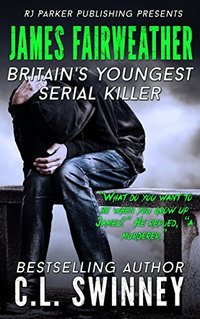 James Fairweather: The True Story of UK's Youngest Serial Killer (Detectives True Crime Cases Book 5)
Genre: True Crime
James Fairweather: The True Story of UK's Youngest Serial Killer (Detectives True Crime Cases Book 5)
Genre: True Crime
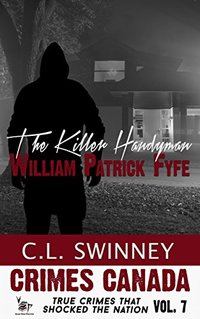 The Killer Handyman: The True Story of Serial Killer William Patrick Fyfe (Crimes Canada: True Crimes That Shocked the Nation Book 7)
Genre: True Crime
The Killer Handyman: The True Story of Serial Killer William Patrick Fyfe (Crimes Canada: True Crimes That Shocked the Nation Book 7)
Genre: True Crime
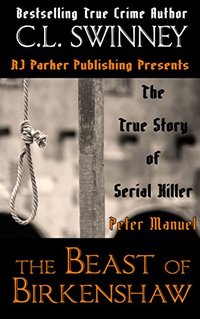 Peter Manuel: The Beast of Birkenshaw Serial Killer (Detectives True Crime Cases Book 3)
Genre: True Crime
Peter Manuel: The Beast of Birkenshaw Serial Killer (Detectives True Crime Cases Book 3)
Genre: True Crime
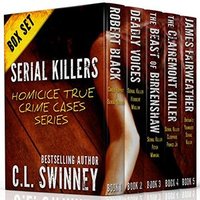 Serial Killers: Collection of True Crime Cases: (5 Books Included - 730 Pages) (Homicide True Crime Cases)
Genre: True Crime
Serial Killers: Collection of True Crime Cases: (5 Books Included - 730 Pages) (Homicide True Crime Cases)
Genre: True Crime
